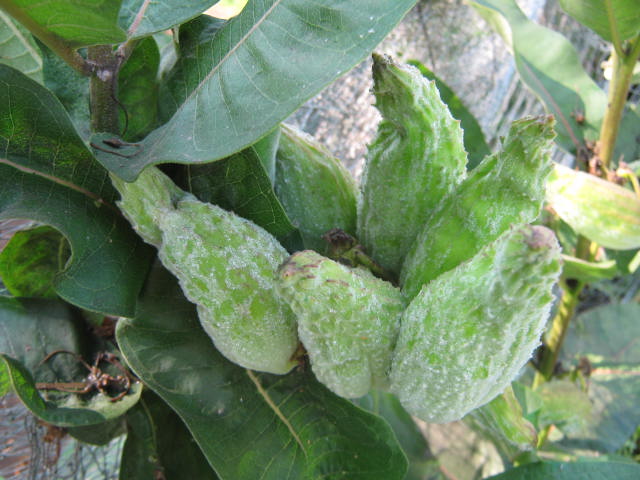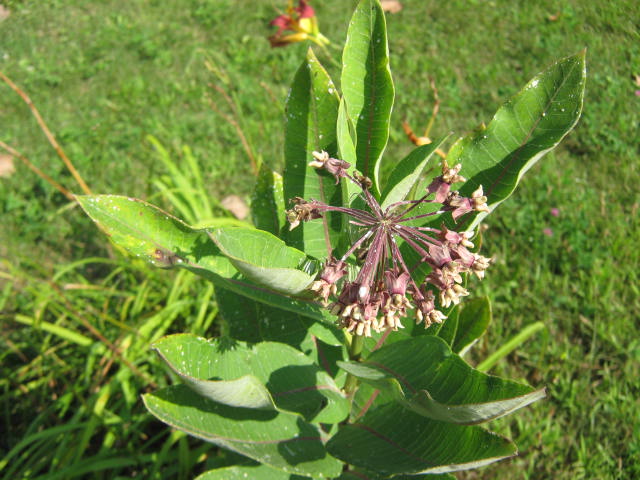Back when I was a kid, it seemed like milkweeds were everywhere. We used to play with the ripe pods by breaking them open and letting the seeds blow away in the wind. I remember asking my Grandfather why they were called milkweed. He told me it was because when you cut the stem, it oozes out sap that looks sweet and milky. He also told me not to try the sap because it didn’t taste good. Of course, later, when he wasn’t looking, I decided to taste the sap, yuk!
Milkweeds have had a checkered past. Sometimes they were considered just a weed that needed to be weeded out of farm fields and gardens. Other times they were highly desirable. For example, during World War Two, ripe milkweed pods were collected and processed into filling for life jackets. The weed helped to win the war in the Pacific.
After WWII, they were once again considered a nuisance. Now, milkweed is rapidly becoming everyone’s favorite weed, or should I say native plant. This is because milkweed is the sole source of food for Monarch butterflies. Without milkweed there are no Monarchs.
With the eradication of milkweed, the Monarch population has crashed from one billion individuals down to around 33 million.
There is a huge and growing effort to allow more milkweed to grow for the sake of the butterflies. The easiest thing for gardeners to do is just leave a few milkweed plants grow in the corner of the yard or garden. Since they are a perennial “weed”, they take absolutely no effort to maintain.
There are more than one species of milkweed in Michigan. Here in our yard we have two different types. The first one blossomed early in the summer and has large pods growing on it already. The other is a smaller plant that is just finishing blooming this week.
The second type has a wonderful fragrance.
Monarch butterflies are out and about in southern Michigan. These are breeding adults. I’ve only seen two so far at our place but other people I have talked to said they have seen several.
By growing milkweed you not only help the overall Monarch population but you get to enjoy watching the butterflies attracted to your garden.
Bob

